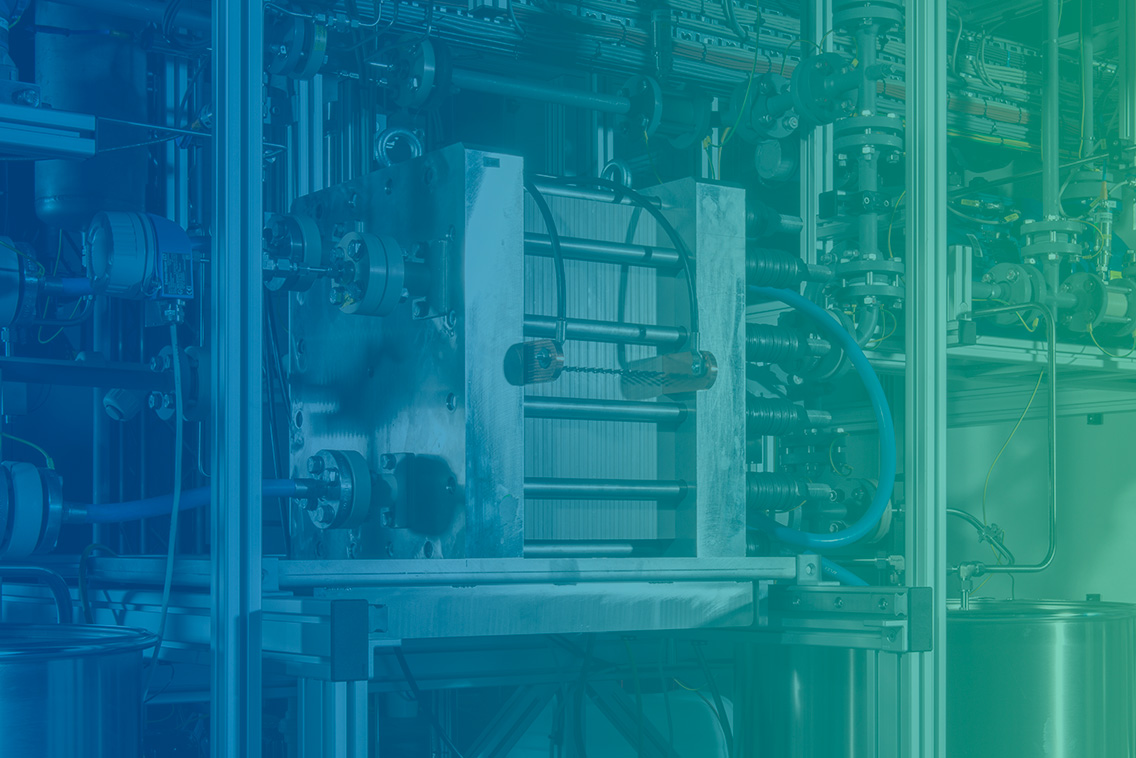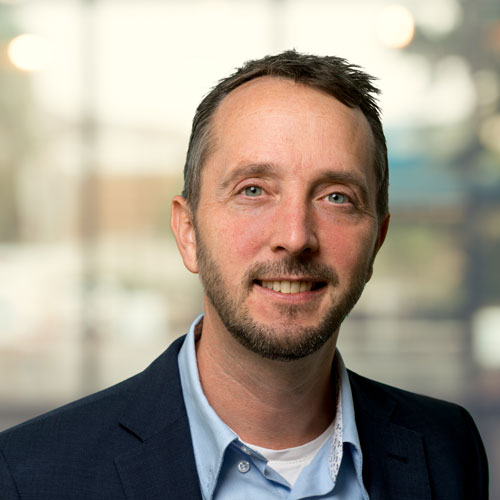

Promising technologies for sustainable chemistry closer to application in practice
11-09-2023 | Project results | E2C News
 In the coming years the chemicals industry needs to transition from fossil-based production processes to using renewable energy so as to make sustainable products. Carbon Capture and Utilization (CCU), a method for converting this greenhouse gas into high-quality sustainable chemicals, is a promising technology here. Another promising route is Power-to-X, i.e. converting green electricity into renewable fuels and chemicals. These technologies do however need to be boosted to a higher “Technology Readiness Level” (TRL).
In the coming years the chemicals industry needs to transition from fossil-based production processes to using renewable energy so as to make sustainable products. Carbon Capture and Utilization (CCU), a method for converting this greenhouse gas into high-quality sustainable chemicals, is a promising technology here. Another promising route is Power-to-X, i.e. converting green electricity into renewable fuels and chemicals. These technologies do however need to be boosted to a higher “Technology Readiness Level” (TRL).
Accelerating the roll-out of Power-to-X applications
In "Enabling Power-to-X & CCU in the chemicals industry" – a report by the Electrons to High-Value Chemical Products (E2C) project (part of the European Interreg 2 Seas programme) – technologies are listed that chemical companies can apply to achieve sustainability. An indication is also given of how this can be done profitably in the near future. The E2C project is co-funded by the European Regional Development Fund (ERDF), which has provided €4.6 million to promote Power-to-X innovation. Completion of the research project marks a number of major advances in the field of electrolysis technology. The results in fact show that with effective government support, it is certainly possible to produce high-quality chemicals on a large scale in a sustainable manner. The test facilities set up during the project have boosted the TRL, bringing closer a working business model for industry.
Sustainable business cases
VoltaChem expert Matti van Schooneveld explains: "It’s now been made clear, with proper substantiation, that positive business cases can indeed be drawn up for the transition to sustainable chemicals. Basic and best-case scenarios have been generated showing that production costs can be reduced over time by a factor of one to two. The report therefore offers some good leads for the business community to focus on the transition to a net-zero future."
Pilot installations
The report outlines the development of Power-to-X and CO2 Capture and Utiliztion (CCU) in the European chemicals industry. A great deal of progress has been made in this area in recent years. Pilot plants have been constructed by TNO as part of the VoltaChem programme to demonstrate the SEDMES (CO2 efficiently converted with green hydrogen into dimethyl ether) and ZEUS (CO2 electrolysis towards formic acid) technologies for production of fuels and plastic intermediates. The report also provides techno-economic analyses, compares the costs of traditional production routes and those using new technologies, and finally makes recommendations for how governments can promote this development.


SEDMES unit at TNO in Petten ZEUS pilot
Further development
"In particular,” Matti adds, “it involves using renewable electricity to convert CO2 into new chemical building blocks, such as fuels and materials. The report also refers to green hydrogen as a useable technology. Thanks to financial support from the Interreg E2C project, these technologies have been boosted to a higher TRL. SEDMES is now at TRL 5, bringing the move to actual application by industry closer. At ZEUS, the CO2 electrolysis plant, we are working to further develop the technology with companies such as reactor constructors, component and materials suppliers, and end users."
Potential for the Port of Rotterdam
There is a lot of industry situated in the port industrial cluster which can benefit from more in-depth research on Power-2-X technology. The Interreg E2C project has made the connection between the lower TRL (lab)research and the practical implementation of the technology and potential scale-up. Through the efforts and collaboration with SmartPort (knowledge hub in the Port of Rotterdam), the knowledge has been shared with the relevant stakeholders which can now use the acquired data to start with the implementation of the technology in their own processes. The Fieldlab Industrial Electrification plays a key-role in accelerating the technology.
Fieldlab
To accelerate this development and implement Power-2-X and CCU technology more quickly in industry, the Industrial Electrification Fieldlab has been set up during the E2C project. In this industrial pilot and test location, companies can test new technologies on an industrially relevant scale in a practical environment. The Fieldlab is set up to offer the opportunity to further develop ideas at higher TRL and validate business cases together with the entire supply chain: end-users, system integrators, technology companies, suppliers, and knowledge and educational institutions. The Fieldlab Industrial Electrification is a joint initiative of Deltalinqs, FME, InnovationQuarter, Port of Rotterdam and TNO. The Fieldlab has been made possible by the European EFRO subsidy and the support of the government, Province of South-Holland and the Municipality of Rotterdam.
Making competitive products
It is perfectly clear that chemicals companies cannot avoid making their processes and products more sustainable – international, European, and national conventions and legislation require it. As the results of E2C show, instead of being a cost item, such investment can actually create a new revenue model. "EU requirements, such as the Carbon Border Adjustment Mechanism (CBAM), impose a tax on carbon-intensive products entering the EU. This makes them more expensive, which benefits European companies that do produce goods that are low-CO2 or CO2-free. Technologies such as Power-to-X and CO2 electrolysis make this possible, and will eventually enable companies to make such products competitive. Moreover, the price of CO2 emission rights via the ETS is continuing to increase. There is therefore every reason for chemicals companies to embrace these technologies as rapidly as possible."
Head start
We have to admit that some hurdles still need to be overcome. TRLs need to be further increased and parties are pushing for that through the VoltaChem programme. But the time it takes to prepare such a major switch means that it’s a matter of urgency. So the sooner companies become familiar with the technologies that have already been developed, the better. "Companies can benefit from the leading position the Netherlands has with TNO and the VoltaChem programme, and companies such as Avantium, a pioneer company in renewable and sustainable chemistry. The Netherlands is unique in already being able to convert CO2 into valuable products on a substantial scale. With that knowledge and expertise, companies can get a head start."
Huge challenges
The report also outlines the need for the transition. Between 2020 and 2050, global demand for carbon for chemicals and derived materials will double from 450 megatons to 1,000 Mt. The current 450 Mt are 85 per cent fossil-based, 10 per cent bio-based, 5 per cent from recycling, and half a per cent CO2-based. By 2050, bio-based couldbe 20 per cent, recycling 55, and CO2-based up to 25 per cent in a fossil-freechemicals industry. "These are huge challenges," says Matti. "and meeting them makes the new technologies indispensable. But the researchers have shown that if we advance a few steps and the chemicals industry uses green electricity, then production will emit much less CO2."
Focused policy
The report provides a series of recommendations for governments to encourage Power-to-X technologies. These include regulations, subsidies and tax breaks, and guarantees. Further promoting innovation and optimisation of technologies is essential. Matti explains: "It would be useful for governments to make choices, preferably in a European context, for a small number of breakthrough technologies and focus on them in a highly specific way. The ultimate goal is to reduce emissions of greenhouse gases. To achieve that, governments, knowledge institutions, and industry need to do everything possible to bring promising technologies to maturity as soon as possible."
The Interreg 2 Sea's Programme Interreg 2 Seas 2014-2020 is made possible by financial contributions from the Dutch Ministry of Economic Affairs, the Provinces of Zuid-Holland and Noord-Holland, SmartPort and the European Interreg 2 Seas Programme, which supports cross-border projects, stimulates innovation, sustainable energy, a healthy environment, and the jobs market.
Share this page:

